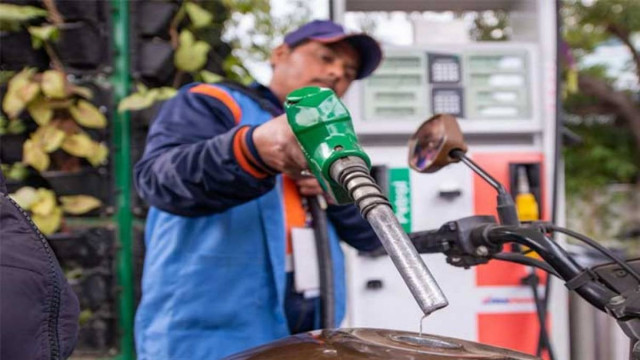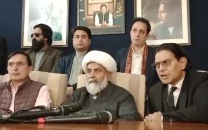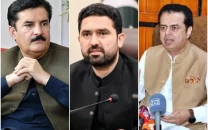PM moves to regain lost political capital
Shehbaz announces Rs50 per litre subsidy for low-income strata

Prime Minister Shehbaz Sharif announced a relief package on Sunday, providing Rs50 per litre subsidy on petrol, a move seen as an attempt to regain the lost political capital just ahead of the elections in the country’s two provinces.
The move also draws similarities to Shehbaz’s predecessor, Imran Khan, who gave Rs200 billion subsidy in April 2022. However, he could not obtain the desired result and cost the country the International Monetary Fund (IMF) bail out.
Chairing a review meeting in Lahore, the prime minister announced that the low-income individuals would receive a petroleum subsidy of up to Rs50 per litre as part of the government’s petroleum relief package.
He directed that the petroleum relief would be given to low-income consumers, who have motorcycles, rickshaws, 800 cc cars and other small vehicles. He added the petroleum subsidy programme would be started soon.
He said that motorcycles, rickshaws and small cars were used by low-income people and the petroleum subsidy would give relief to the poor. The government was making effort for all possible help to the poor people, despite economic difficulties, he added.
“A comprehensive strategy will be devised with the cooperation of relevant departments for the effective implementation of the subsidy programme,” the prime minister told the participants.
The prime minister seems to be simultaneously playing a gamble with the voters as well as the IMF. According to political pundits, chances were that the global lender might not support such a proposal.
The government has long been trying to meet the IMF conditions for the release of a $1.1bn loan tranche, which was originally due in November 2022. These measures include the Rs170 billion mini-budget. However, the IMF deal is still awaited.
Besides, the government, much to the public resentment, jacked up prices of petroleum products, increased electricity and gas tariffs, devalued currency, raised interest rate at the same time failed to rein in the inflation.
A press release from the Prime Minister Office stated that Shehbaz reviewed the petroleum relief package for lower income petroleum consumers. He said that the low-income petroleum consumers would be given relief of up to Rs50 per litre on petrol.
The meeting was attended by Finance Minister Ishaq Dar, Prime Minister’s Adviser Ahad Cheema, Special Assistant Tariq Bajwa, finance secretary, petroleum secretary, and other high-ranking officials.
It was reported earlier that the government desired to give Rs150 billion subsidised petrol package to motorcyclists and other low-income individuals in order to avoid any objection from IMF.
The government was mulling over plans to raise the petrol price for car owners and reduce it for the motorcyclists, rickshaw drivers and others. However, reportedly, the mechanism plan had not been finalised but the options included provision of one-time password, giving pre-paid cards, giving cash or by increasing fuel rates for the car owners driving above 800cc.
However, experts feel, the government’s plan to simultaneously woo voters and avoid losing IMF support is a double-edged sword as neither people would be willing to pay for government’s political adventures nor the country can afford derailment of IMF programme, again.
Since coming to power, the incumbent rulers have been accusing the previous Pakistan Tehreek-e-Insaf (PTI)-led government of laying “landmines” to push Pakistan towards economic destruction.
In June last year, Minister of State for Petroleum Division Senator Musadik Masood Malik had said that Imran’s decision meant that he decided to take out Rs1,500 billion to be divided equally between the rich and the poor through subsidy on fuel.
“This should help you understand that this was not a decision but a landmine that was laid down to push Pakistan towards economic destruction,” he had said, adding the coalition government was not power-hungry but wanted to address core issues.
The minister of state had explained that if the prices of petroleum products were not increased for just one month then the cost incurred would have amounted to Rs100 billion to Rs120 billion.
As the elections are coming nearer, the government is trying to win back public support and in this regard, it is not only mulling over to give subsidy on fuel but also trying to get fuel from Russia at cheap rate.



















COMMENTS
Comments are moderated and generally will be posted if they are on-topic and not abusive.
For more information, please see our Comments FAQ